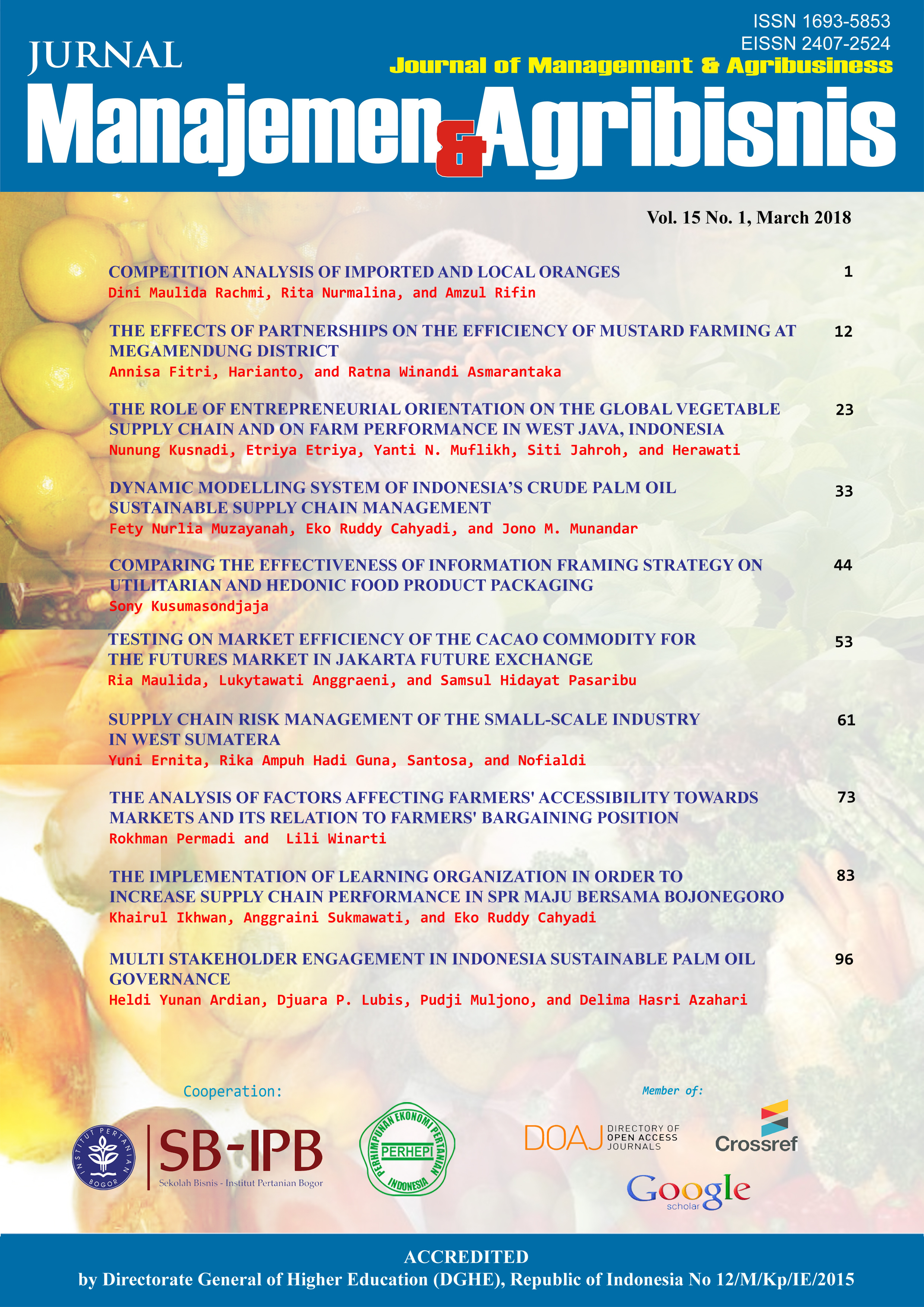The Implementation of Learning Organization in order to Increase Supply Chain Performance in SPR Maju Bersama Bojonegoro
Abstract
Sekolah Peternakan Rakyat (SPR) Maju Bersama was formed 3 years ago. SPR Maju Bersama still has some weaknesses in terms of human resource and supply chain performance. Learning organizations are needed for organizations to form an organization that can continuously run independent learning process, so that it has a fast thinking and acting to respond any changes. Therefore, SPR has to implement the learning organization. This paper aims to identify the effect of learning organization on supply chain performance in SPR Maju Bersama. A Model was developed and tested with quantitative and qualitative analysis. A total of 99 members of Sekolah Peternakan Rakyat Maju Bersama were used as data in this study. Quantitative data were analyzed using Structural Equation Mode- Partial Least Square (SEM-PLS). The results showed that learning organization had a positive impact on supply chain performance but not significant. Supply chain driver had a positive and significant impact on supply chain performance. Supply chain driver was significantly impacted by learning organization. Leadership style had a positive and significant impact on learning organization. SPR Maju Bersama needs to optimize its facility and information utility as a strategy to improve its supply chain performance.
Authors
Authors who publish with this journal agree to the following terms:
- Authors retain copyright and grant the journal right of first publication with the work simultaneously licensed under a Creative Commons Attribution License that allows others to share the work with an acknowledgement of the work's authorship and initial publication in this journal.
- Authors are able to enter into separate, additional contractual arrangements for the non-exclusive distribution of the journal's published version of the work (e.g., post it to an institutional repository or publish it in a book), with an acknowledgement of its initial publication in this journal.
- Authors are permitted and encouraged to post their work online (e.g., in institutional repositories or on their website) prior to and during the submission process, as it can lead to productive exchanges, as well as earlier and greater citation of published work (See The Effect of Open Access).

